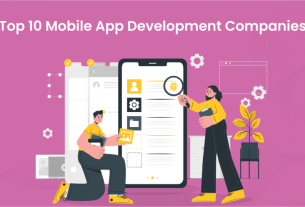A new role called ‘project lead’ replacing the principal investigator title is among the changes applied to new funding opportunities in the new UKRI Funding Service from 22 May 2023.
Natural Environment Research Council (NERC) Executive Chair and Senior Responsible Owner of the Simpler and Better Funding programme Professor Sir Duncan Wingham said:
These changes support UKRI’s five-year strategy and our commitment to ensuring recognition and career development pathways for everyone involved in delivering research and innovation.
They also support the introduction of our new Funding Service, simplifying our processes and making it easier for applicants to collaborate across disciplines and portfolios.
The Funding Service
The new UKRI Funding Service is easy to use and supports everyone involved in research funding.
Previously, researchers were presented with a selection from 35 different role types. These have now been harmonised to a set of 12.
These role changes will apply only to applications made using the UKRI Funding Service. Funding opportunities that use the Joint Electronic Submission (Je-S) system or Innovate UK’s Innovation Funding Service are not affected.
To ensure they use the right roles, applicants should:
- check the details of the published funding opportunity, which will outline what roles are available, before preparing their application
- discuss the application with the lead organisation before submitting
Reducing duplication
In many cases, harmonisation has involved consolidating various functionally identical roles which had different names across UKRI’s nine councils.
For example, what most UKRI councils previously called a ‘training grant holder’ or ‘programme manager’ was called a ‘project manager’ by Innovate UK and a ‘competed department administrator’ or ‘co version overseer’ by Research England.
Under the new guidance, this role becomes a ‘grant manager’ throughout UKRI, reducing five names for the role to one.
Consolidating role types reduces complexity and bureaucracy, while broader definitions are more accommodating than the narrow ones used previously.
In this way, the changes also support UKRI’s drive to better reflect the wide range of people who apply for UKRI funding.
It’s all part of our push towards simpler, better funding and greater efficiency as outlined in our five-year strategy.
Responsive mode funding opportunities
The first responsive mode funding opportunities, including new grant roles, launched on the Funding Service on 23 May. This is a significant mark of progress for the Simpler and Better Funding programme.
The Engineering and Physical Sciences Research Council, NERC and Economic and Social Research Council are the first councils to transition their responsive mode funding opportunities to the Funding Service. The Arts and Humanities Research Council and Medical Research Council will follow shortly.
You can find out more about council transition plans and timelines on the UKRI Simpler and Better Funding programme pages.
The launch of these funding opportunities on the Funding Service also incorporates several key developments to improve the funding experience for applicants and reviewers, such as:
- standardised question sets that align with the UKRI principles of assessment and decision making
- structured costs capture to allow opportunities to require either outline or full costs at application stage
- Résumé for Research and Innovation using structure and logic that make it easier for applicants to demonstrate, and be assessed on, their relevant skills and capabilities
Top image: Credit: tadamichi, iStock, Getty Images Plus via Getty Images



